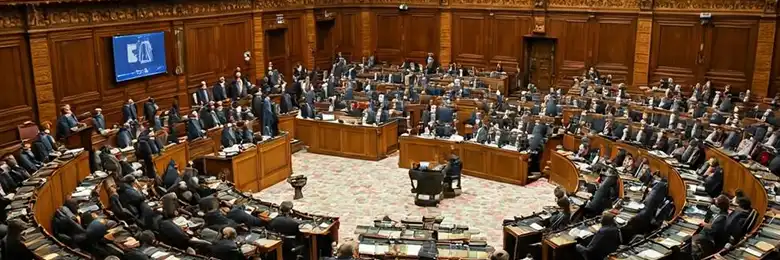SHORT STORY SIMPLICITY
SIMPLICITY
Automatic traslation from the original story in Spanish. Not checked manually
Miguel was a successful man. He had started from scratch and, in just a few years, transformed an idea into a major company with an international presence.
A very important part of this meteoric rise was due to the rigor with which he selected his employees. He paid very high salaries and allowed good flexibility in working hours, in exchange for his three fundamental pillars: knowledge, discipline, and responsibility.
In his opinion, these three pillars were what had allowed him to succeed in every aspect, including the magnificent family well-being he had achieved.
His restless spirit led him to try to learn in all aspects of life, to be disciplined in his tasks, and to be a champion of responsibility. He was a good husband, a good father, and a visionary businessman capable of transmitting these values and the enthusiasm for achievements to his company’s staff.
He did all this in a simple and spontaneous way, without allowing any of the three fundamental aspects of life—health, money, and love—to cause the other two to collapse. This order, this instinct, and this sobriety had taken him to the top. Upon turning 55, he spoke with Marta, his wife, to share his latest idea and get her opinion.

“Marta,” he said, “I’ve been thinking that we have a considerable fortune that allows us to face the future with complete peace of mind. We’ve raised our children, both Manuel and Isabel, with values, knowledge, and a strong work ethic. I’m certain they’re both perfectly prepared to run the company, and I’d like to retire…”
“Retire?” Marta interrupted. “But you need to be active all the time. It’s an important part of your life!”
“I’m aware of that, Marta. You didn’t let me finish. I want our children to run the company, and naturally, I’ll be there to help them with any questions or problems, but I need time to put an idea into action.”
“A new company?”
“Yes and no. It’s not exactly a business, but deep down, it’s the same thing.” Life, society, and, why not, luck have given us a lot. I feel obligated to give back to society.
“Would you like to make a donation? If you think it’s necessary, I have no objection.”
“No. That’s not what it’s about. I’ve always believed that it’s better to teach a hungry man to fish than to give him a fish… What I want to do is dedicate myself to politics, to run the country like a business. To generate wealth, but above all, to transmit our core values to everyone: knowledge, discipline, and responsibility. If I manage to come to power, I’m sure that in a few years we’ll have the best country in Europe.”
“But Miguel, if people are increasingly less motivated to study or work… Do you really think anyone is going to listen to you?”
“They told me the same thing when I started the company, and look at the commitment of the staff.”
“Because you’ve been very skilful in selecting them, and you’ve paid them very well without exploiting them.”
“A country is just a very large company.” At first it will be difficult, but little by little, and seeing the results, people will stop being influencers on TikTok, YouTube, and all that unproductive stuff. They’ll see that the best way to enjoy an excellent position is through a culture of hard work.
—This is the first time that, although I will obviously support you in whatever you decide, I think you’re being naive.
—Ha, ha, ha! You’ll see I’m not! I plan to invest around 50 million euros to carry out a very effective advertising campaign to present myself as a viable candidate in the next elections. The party’s acronym will be: FAEF For An Excellent Future. I had initially thought For A Better Future, but the truth is that the acronym pronounced FAB F in certain intonations would sound terrible.
…/…
Since there was less than six months until the elections, Miguel, with the support of Marta and their children, began the promotional campaign for his new party, PUFE. He decided that his campaign would not be based on insults, outbursts, and the denigration of his opponents. It would be founded on education and respect. He would offer concrete and well-reasoned programs.
If he came to power, he would begin by profoundly reforming education. The teaching degree would become the highest qualification for university admission. Teachers would be required to be educators as well as instructors.
It would be essential to recover the teaching of values, discipline, and the cultivation of critical thinking, so that young people could enter society with aspirations and prepared to achieve high levels of effectiveness and performance.
He precisely outlined his macroeconomic principles and the time required to achieve economic prosperity, even for the most disadvantaged populations. Clearly, to achieve this, he would reduce unnecessary expenses, such as having numerous ministries devoid of substance.
He would also propose that in the future elections, the percentage of uncast votes, which currently have no influence, would become empty seats in parliament and the senate. It was essential that the politicians’ good work bring citizens to the polls…
All aspects of his program were easily understood and relatively simple to implement. Most economists praised them wholeheartedly. They were convinced that a new era of prosperity was dawning, after years of political emptiness and corruption. It was wonderful to finally glimpse transparency in the proposals. Business owners were protected, workers were protected, and those who profited from the system were removed, regardless of their economic status.
…/…
The elections arrived, and the campaign began. Soon after, right-wing parties labelled Miguel a communist and a plunderer. Left-wing parties called him a Nazi and an exploiter…
When Miguel appeared in the media, he never used insults against his opponents. Even when shown images of the string of nonsense someone was saying about him, he would simply say, “I can’t comment on someone I don’t know and who, to date, hasn’t presented any government program. I think the people are intelligent enough to choose what’s best for them.” Correctness, conciseness, and good manners characterized Miguel’s campaign, and he was convinced he would achieve excellent results.
On election night, Miguel and his family watched the giant screen set up at party headquarters with bated breath. The only one who wasn’t so sure was Marta, who, anticipating the results, told Miguel: “Remember what Joseph de Maistre said around 1800: ‘Every nation gets the rulers it deserves.'”
…/…
Around 1 a.m., with almost 95% of the votes counted, the PUFE hadn’t won a single seat. Miguel, somewhat disappointed, smiled and said to Marta: “You were right, my dear. I was naive. I thought people were smarter than they are. Oh well, I had my fun for a few months, now I’m going to keep making money and enjoying life and looking out only for us.”
Simplicity – Short stories series – Copyright ©Montserrat Valls and Juan Genovés

